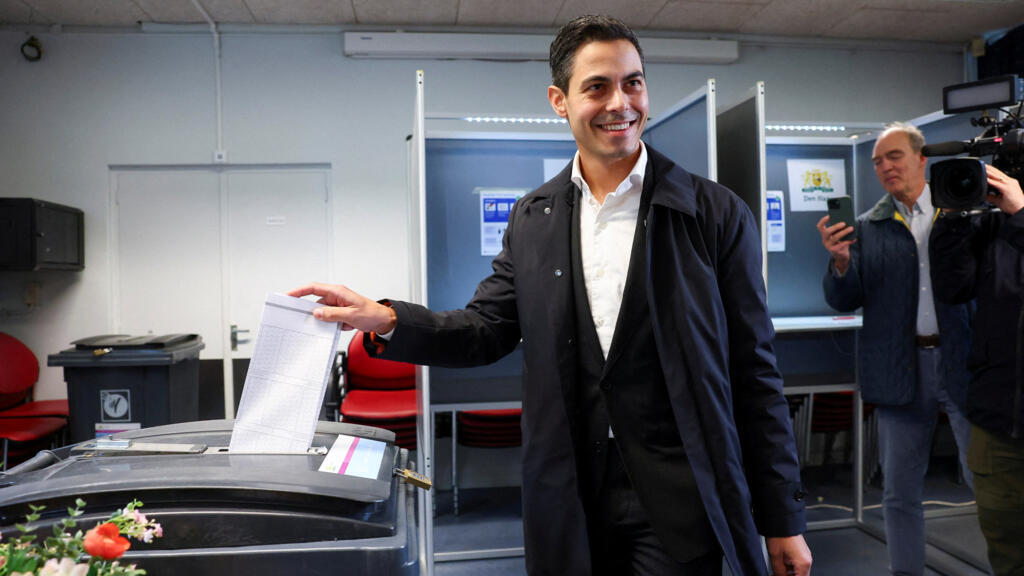In the latest developments from the Netherlands' national elections, the centrist party D66, led by Rob Jetten, appears poised to surpass its far-right rivals, securing a strong position in the Dutch political landscape. Exit polls indicate that Jetten's party is on track to claim victory, potentially paving the way for him to become the youngest prime minister in the country's history. This moment signifies a notable shift as the nation grapples with its political identity amidst rising tensions between progressive and far-right ideologies.
Geert Wilders, the leader of the far-right Freedom Party, which previously emerged as the front-runner in the 2023 elections, expressed his discontent over his party's performance in this round of voting. Despite having claimed first place in previous elections, the recent polling suggests a decline in support for Wilders and his platform. His disappointment reflects a broader trend observed across various political factions, highlighting the volatility of voter sentiment as the nation continues to navigate complex socio-political issues.
Furthermore, the results have also prompted significant changes within the left-wing political arena. The leader of the left-wing Green Left political party announced their resignation following a disappointing outcome in the elections. This decision underscores the challenges faced by left-leaning parties in the Netherlands amid rising competition from both centrist and far-right factions. The political landscape is becoming increasingly competitive, making it essential for parties to adapt and respond effectively to the evolving preferences of the electorate.
The election results, which showcase the electorate's shifting priorities, indicate a growing desire for centrist governance in contrast to the hardline stances often associated with far-right parties. With Rob Jetten and D66 potentially at the helm, the focus may shift towards more moderate policies that address the key challenges faced by the country, including issues such as climate change, immigration, and economic inequality.
This political shift may also signal a re-evaluation of far-right ideologies within the Dutch political context, as voters seem to be turning towards parties that offer more moderate and inclusive solutions to complex problems. The developments in this election cycle reflect a crucial moment in Dutch politics, where parties must re-assess their strategies to remain relevant in an increasingly polarized environment.
As Dutch citizens anticipate the official results and the formation of a new government, the impact of these elections will be felt across the European political landscape. The potential rise of Jetten as the youngest prime minister could inspire similar movements in neighboring countries, as leaders look to emulate the centrist strategy that resonates with an evolving voter base tired of extremes on either side.
In conclusion, the national election results in the Netherlands are a powerful reminder of the importance of centrist politics in a time of division. With Rob Jetten's D66 party appearing to gain traction over far-right sentiments, the political future may lean towards a more moderate approach that seeks to unify rather than divide. The dynamics of these elections showcase the changing nature of political ideologies and the ongoing quest for solutions that address the multifaceted challenges faced by society.












